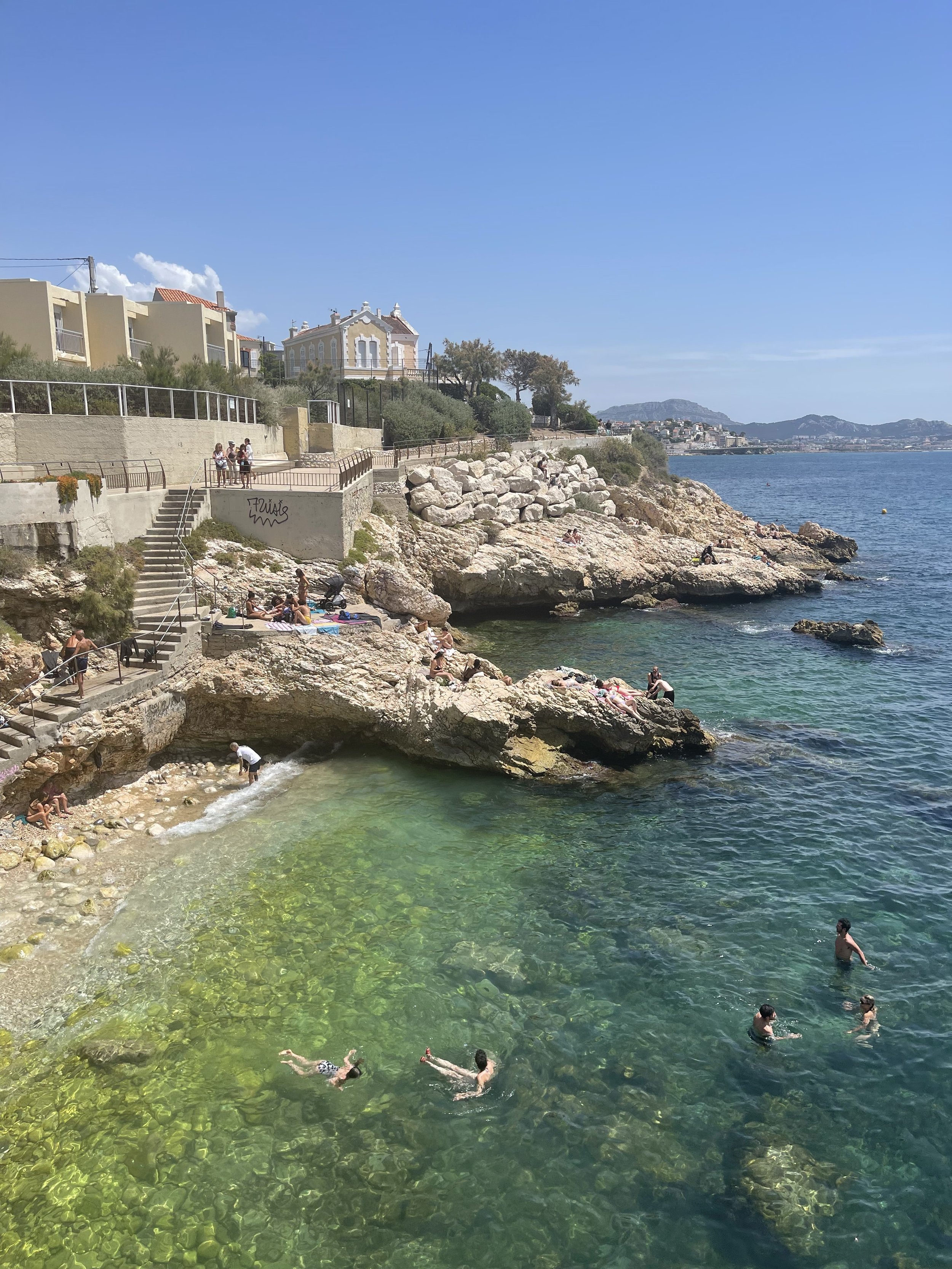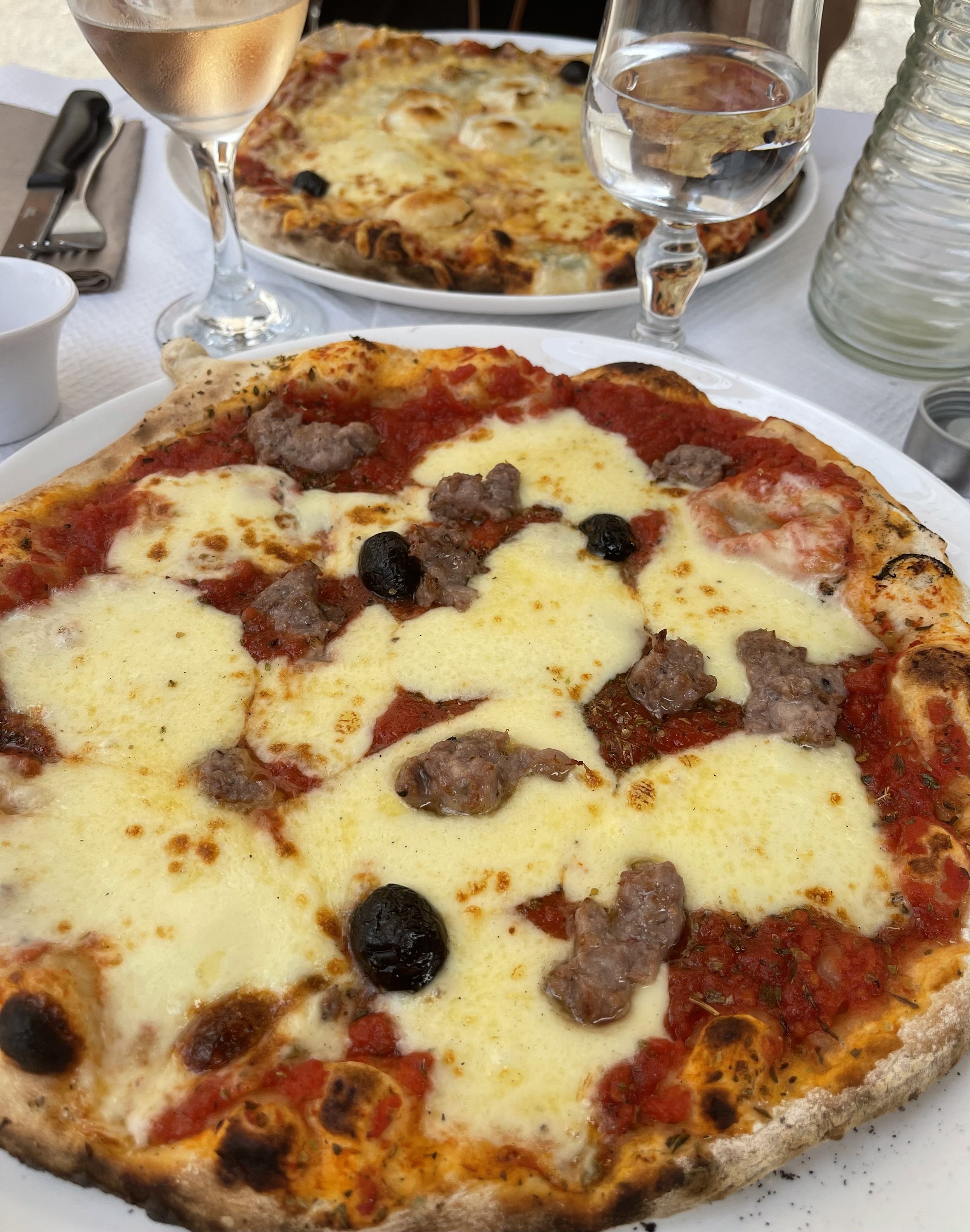encore europe
The swirling change of gemini season. Ungrounded. Torn from the roots of routine. Hadn’t I intentionally planned late May and early June to be free from routine at the end of an academic year? Still, gemini seasons brings discomfort.
The last time I wrote meaningfully, not for work or graduate school, was the gloomy day that Russia unleashed a brutal attack - a war - on Ukraine. Gloomy, the outlook, the bloodshed, but also a wet and gray late February day in Washington, DC. marked in contrast to the previous day, a teaser of spring on the East Coast at the end of winter.
Paris.
A stamp in an American passport. I am permitted to enter the European Union for ninety days. M. enters as a European, with a German passport. M. flashes the burgundy travel document. Home. Europe. A brief stop, a pause, in Paris. We finally visit the opulence of Versailles before taking the high speed rail to Aix-en-Provence.
A continent with war on it now. Again. The first time I’ve returned to Europe since Russia invaded Ukraine, but I should say, since Russia further invaded Ukraine. We often neglect to remember that war has been raging in Eastern Ukraine since 2014. 2014 I was European. I am European, but then I was still a European citizen. The year I lived in Vienna and Belgium. I studied Dutch in Flanders. I completed a stage in Germany. I spoke other languages more than English. My most “European” year. Since then, Russia has attacked and occupied the yellow fields and wide blue skies of Ukraine.
I wish I had visited Lviv in 2016 when I spent late summer and early fall in Krakow, Poland – but how would that have changed anything? I yearn to visit Ukraine to meet the people and experience their resolve and their commitment to democracy. But how would that help? It wouldn’t.
Émigré.
We return to France for a wedding in Aix. Émigré. Before the celebrations, we head into Marseille for a lunch of pizza in Le Panier, the oldest district of the city, and a swim in the deep blue pool of the mediterranean. In a hidden cove, a woman carefully carves and slices a cantaloupe melon. Marseille is spontaneous. From the Corniche JFK, you select a small rocky cove to enter the water or a hidden port to stroll along – often in these small ports, there are entries into the cool water, too. Teenagers plunge from the rocks into the Mediterranean below. Mopeds struggle to climb the hilly streets above the Corniche leaving behind a faint smell of gasoline. The Vieux Port sells fresh fish for Bouillabaisse. In the neighborhoods between the Vieux Port and the main train station, Marseille St. Charles, restaurants serve tajines and plates of couscous in Tunisian, Moroccan, and Algerian restaurants. Le Panier has stores selling savon from across Provence.


The vibe of the wedding feels émigré. A speech at the chateau speaks of the family having no hometown. This gathering, at the two long tables decorated with flowers, fresh fruits, candles, and table cloths imported from Jaipur, is a village - their village - a reunion of family and friends from across the globe. Friends from San Francisco, Belgium, India, Shanghai, and beyond.
Hometown? I don’t always resonate with the discussion of hometown. Now, DC feels like my hometown, our hometown. Where are you from? Washington, DC.
In between celebrations, we return to Marseille to meet with Madame. One of the only people I stay in contact with from “my home town” whatever that means. My French teacher in the town where I went to high school. In a town where many people have stayed, Madame had left a “hometown” to move overseas, and then, like me, left the town where I learned and longed for Provence, for Marseille. Even then, I had told her, and promised myself, I, too, would leave. I have left. We have left, and now we reunite.
C'était mon élève she tells the owners of the pizza restaurant we return to in Le Panier. Madame introduced me to Marseille. I visited for the first time ten years ago, and this is my fourth trip to the city to drink cold rosé with two ice cubes, to explore the Calanques, and plunge into the mediterranean.
Between travels.
The purgatory of Charles de Gualle, but soon we’re in the United States, again. We only return for a conference and another wedding. In Colorado, I attend a workshop on the legacy of Josef Mestenhauser, an educator and academic at University of Minnesota. The workshop weaves in his dual identities. Czech-American or American-Czech. The moderator of the workshop comments on how he felt less Czech (how I feel less British, even less European). Mestenhauser misunderstood the country of his birth. I misunderstand, now, the country I left behind, and regrettably, the continent I left behind. I, too, am misunderstood by the country and the continent. European, but American. I felt foreign in France. I accept that now I am comfortable and familiar in the United States. But, still, I am also European.
I find myself grounded at Meridian Hill Park (Malcolm X Park) at home in DC. On the ground, my feet in the grass, I sit with an audio book on a yoga mat. In the park, others ground themselves in the city, in the moment, and in the season of early summer. Hammocks, yoga mats, books, marijuana, picnics, rosé, conversations with friends on benches, skateboards in the empty water fountains under renovation.
Change again: we return to Athens for three weeks of vacation. I tell colleagues I won’t be online again until late June:
“I forget that you’re European.”
Athens.
I dreamed of Greece during the pandemic, from the beginning of the pandemic. I found Joni Mitchell, and the songs California and Carey, songs which accompanied me on walks through Washington, DC. as I passed shuttered stores, crossed streets with no traffic, as early spring and pandemic gripped the city in March 2020.
A third summer of pandemic. A second summer in Greece.
I write on the terrace of an apartment at 2am in Athens. I listen to an audio book, Rachel Cusk, Outline, on the couch. The doors to the terrace open. A light breeze fills the apartment. The glow of the Greek Capital fools me into thinking there are glimmers of dawn, but it’s not dawn but rather indistinct light pollution from across the city. In June, the sun rises at 6am.
“The wind is in from Africa. Last night I couldn’t sleep.”
Athens is rebellious: the left-wing, even proudly self-described socialist, neighborhoods graffitied with “fuck the police”. Graffiti doesn’t not mean beautiful. Plants and trees emerge from terraces and balconies everywhere.
Joni Mitchell’s blue was inspired by exploring Greece and its islands, especially Matala on Crete. One day, I’ll visit the caves in the cliffs where hippies lived in the 1970s. I believe, now, the Mermaid Cafe no longer exists. I’ll find my own Mermaid Cafe.
Rachel Cusk’s outline begins with a long conversation between strangers on a flight from London to Athens
Deborah Levy ends her living autobiographies at a house on a Greek island.
The Durrell’s, and a trilogy of books about the family’s life in Greece in the 1930s, is set and inspired by time on Corfu, the island we’ll spend most of this summer’s trip to Greece. They, too, left behind the United Kingdom.
I’ll be in Greece for the summer solstice. The solar power of mid-year. Six months since winter solstice in Tennessee and six months until winter solstice, I hope, in Iceland.
“Maybe I’ll go to Amsterdam, maybe I’ll go to Rome.”
This time, my trip will end in Amsterdam with a reunion.






